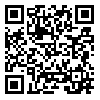Volume 30, Issue 7 (10-2023)
RJMS 2023, 30(7): 1-13 |
Back to browse issues page
Research code: IR.IAU.CTB.REC1401.069
Ethics code: IR.IAU.CTB.REC.1401.069
Clinical trials code: IR.IAU.CTB.REC1401.069
Download citation:
BibTeX | RIS | EndNote | Medlars | ProCite | Reference Manager | RefWorks
Send citation to:



BibTeX | RIS | EndNote | Medlars | ProCite | Reference Manager | RefWorks
Send citation to:
Shahinyar S, Nemattavousi M. The Mediating Role of Self-Regulation in the Relationship between Self-Evaluation and Sense of Coherence with Interpersonal Communication Skills. RJMS 2023; 30 (7) :1-13
URL: http://rjms.iums.ac.ir/article-1-8037-en.html
URL: http://rjms.iums.ac.ir/article-1-8037-en.html
1- MSc, Department of Clinical Psychology, South Tehran Branch, Islamic Azad University, Tehran, Iran
2- Associate Professor, Department of Psychology, South Tehran Branch, Islamic Azad University, Tehran, Iran ,nemattavousi@yahoo.com
2- Associate Professor, Department of Psychology, South Tehran Branch, Islamic Azad University, Tehran, Iran ,
Abstract: (1593 Views)
Background & Aims: The lack of interpersonal communication skills causes inefficiency in relationships, social rejection, and mood and emotional conflicts.what make relationships effective and stable is interpersonal communication skills. Communication skills are the use of symbols and appropriateand effective behavior in a certain social situation. One of the important fectors in learning communication skills is self-regulation, which regulatesbehavior according to social, cognitive and emotional situations, and includes states and processes related to the regulation of tension, mood, thoughts, attention, emotions and motivation. Self-regulation is influenced by self-evaluation, so that with the decrease of self-evaluation, people’s self-regulation to solve problems also decreases, and as a result, interactions drop drastically. Self-evaluation is a way to identify and evaluate individual skills. The sense of coherence is another component that strengthens social order and social relations by influencing self-regulation and life satisfaction. Identifying these factors that affecting interpersonal communication skills can prevent the occurrence of adverse consequences, therefore the aim of the present study was to determine the relationship between self-evaluation and the sense of coherence with interpersonal communication skills, considering the mediating role of self-regulation.
Methods: The current research was descriptive of the correlation type. 278 undergraduate and graduate students of Valiasr Complex of Azad Tehran Jonoob University who were studying in 1400-1401 were selected as the sample group. A staged sampling method was used for sampling. The Communication Skills Test Revised (CSTR-34), The Core Self-evaluation Scale, Cognitive Emotion Regulation Questionnaire (CERQ-36) and Sense of Coherence Scale (SOC-29) to collect datas were used. The collected datas were analysed by structural equation method using AMOS software.
Results: The results showed that there is a positive and significant relationship between self-evaluation and sense of coherence with self-regulation and interpersonal communication skills and the self-regulation can play a mediating role in the relationship between self-evaluation and the sense of coherence with interpersonal communication skills. According to the result of The Structural Equation Test, 42/9% of the Variance of self-regulation can be explained through the sense of coherence and self-evaluation. Also self-evaluation, sense of coherence and self-regulation explain 58/8% of the Variance of interpersonal communication skills.
Coclusion: The self-evaluation and sense of coherence lead to an increase in self-regulation and finally to an increase in interpersonal communication skills. The results of this research showed that self-regulation plays a mediating role in the relationship between self-evaluation and sense of coherence with interpersonal communication skills. Factors affecting self-regulation such as self-evaluation and sense of coherence facilitate efficient relationships as well as high levels of self-evaluation and sense of coherence. It is associated with high levels of self-regulation and effective relationships. self-evaluation leads to gradual mastery of behavior control, increasing the sense of coherence, self-efficacy and satisfaction of a person with himself. On the other hand, all three components of sense of coherence (comprehensibility, manageability and meaningfullness) through identifying and understanding stressful situations, manage and controlling resources and coping strategies, and prioritizing values and goals can help people self-regulate play a significant role. In other words, sel-regulation guides behavior and plays an effective role in establishing and maintaining interpersonal relationships.
Methods: The current research was descriptive of the correlation type. 278 undergraduate and graduate students of Valiasr Complex of Azad Tehran Jonoob University who were studying in 1400-1401 were selected as the sample group. A staged sampling method was used for sampling. The Communication Skills Test Revised (CSTR-34), The Core Self-evaluation Scale, Cognitive Emotion Regulation Questionnaire (CERQ-36) and Sense of Coherence Scale (SOC-29) to collect datas were used. The collected datas were analysed by structural equation method using AMOS software.
Results: The results showed that there is a positive and significant relationship between self-evaluation and sense of coherence with self-regulation and interpersonal communication skills and the self-regulation can play a mediating role in the relationship between self-evaluation and the sense of coherence with interpersonal communication skills. According to the result of The Structural Equation Test, 42/9% of the Variance of self-regulation can be explained through the sense of coherence and self-evaluation. Also self-evaluation, sense of coherence and self-regulation explain 58/8% of the Variance of interpersonal communication skills.
Coclusion: The self-evaluation and sense of coherence lead to an increase in self-regulation and finally to an increase in interpersonal communication skills. The results of this research showed that self-regulation plays a mediating role in the relationship between self-evaluation and sense of coherence with interpersonal communication skills. Factors affecting self-regulation such as self-evaluation and sense of coherence facilitate efficient relationships as well as high levels of self-evaluation and sense of coherence. It is associated with high levels of self-regulation and effective relationships. self-evaluation leads to gradual mastery of behavior control, increasing the sense of coherence, self-efficacy and satisfaction of a person with himself. On the other hand, all three components of sense of coherence (comprehensibility, manageability and meaningfullness) through identifying and understanding stressful situations, manage and controlling resources and coping strategies, and prioritizing values and goals can help people self-regulate play a significant role. In other words, sel-regulation guides behavior and plays an effective role in establishing and maintaining interpersonal relationships.
Type of Study: Research |
Subject:
Clinical Psychiatry
Send email to the article author







